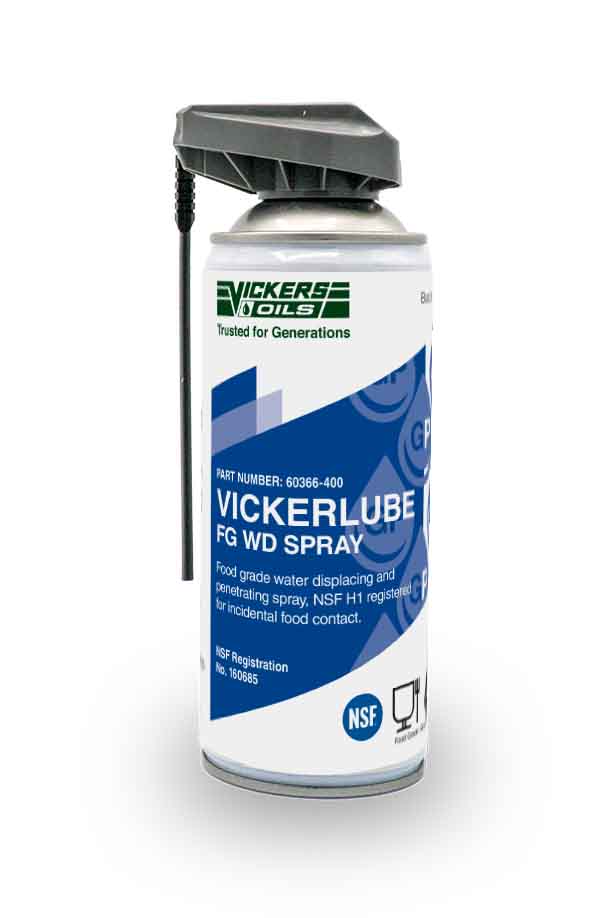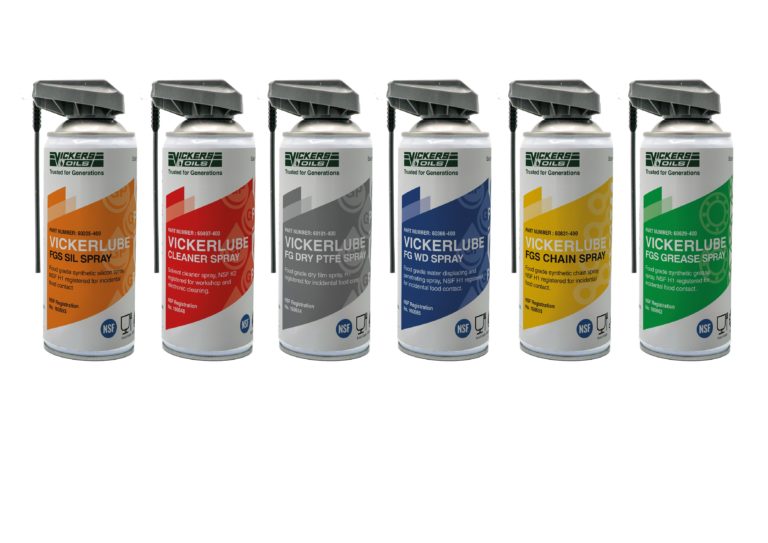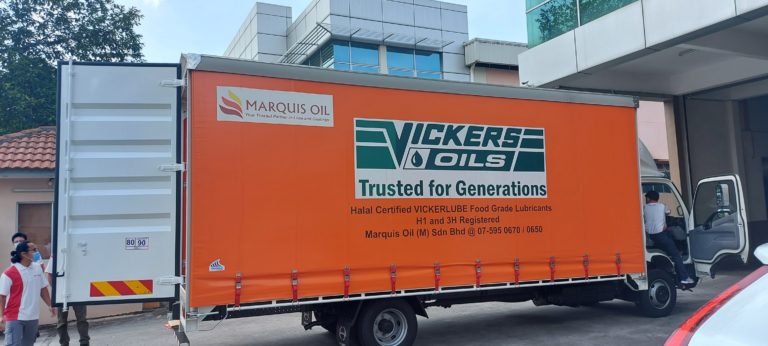Lubrication Management : It is important to manufacturers
In today’s competitive food and beverage production arena, it is important to ensure that maintenance costs and downtime are kept to a minimum. Planned maintenance can help to ensure that the processing equipment is as reliable as possible and the need to maintain it is kept to a minimum. This includes lubricants and lubrication related downtime and costs. By selecting the right Food Grade lubricant for the application, you can keep these unwanted costs to a minimum.
Lubrication experts revealed that one third (28%) of manufacturing equipment failure is due to incorrect lubrication.
Improper lubrication can include using the wrong type or the wrong amount of lubricant. This can lead to increased friction and greater wear of the machinery thereby leading to critical breakdowns and downtime. Lubricants prevent wear and any resulting damage between a bearing’s rolling and sliding surfaces, reduces friction and heat generation, helps protect against corrosion and keeps contaminants out.
Mismanagement of lubrication can lead to costly consequences. This is no truer than in the food and beverage, pharmaceutical and personal care sections where the added onus on HACCP requirements and ensuring that stringent food and pharmaceutical standards are met.
Large-scale food processing requires machinery such as pumps, mixers, tanks, hoses and pipes, chain drives, and conveyors. Machinery used in food processing facilities face many of the same lubrication challenges found in other non-food processing plants and more. Lubricants have to offer protection of internal surfaces to control friction, wear, corrosion, heat, and deposits. If the application requires , lubricants also have to offer good pumpability, oxidation, hydrolytic and thermal stability . Many industries demand that lubrication also resists degradation and diminished performance when they come into contact with foods, chemicals, bacteria, and water.
Food manufacturers can incur major losses not only due to improper lubrication causing damage to the machinery but also if lubrication contaminates their products.
In the past few years, there has been a growing trend in establishing lubrication management programs for food manufacturers.
The lubrication management concept takes a holistic approach to lubrication. In this approach, lubricants are considered not as consumables to be purchased at the lowest price, but as an asset to be managed and nurtured. This nurturing process starts the day the lubricant arrives onsite and ends the day the oil is drained from the component and disposed of appropriately.
In doing so there are a few key areas to consider that include:
- Correct lubricant selection
- Lubrication storage and handling
- Contamination control
- Oil sampling techniques
- Training and safety measures
- Lubrication analysis
- Procedures and guidelines
- Safety and disposal techniques
- Continuous improvement
- Correct product certification, including H1, Halal and Kosher
- Access to Safety and Product Data Sheets
- Internal or external auditing needs
For a lubrication management programs to be successful, these areas and more must be assessed and improvement must be made for ongoing and sustained development.
Keeping up with Lubrication Management can be an ongoing and daunting task. Vickers Oils aims to make it easier for everyone. With our new Lubrication Management app called InSite, Lubrication will go from a never-ending checklist, to a simple task. Our aim is to take management of lubricant to the next level to prevent future losses due to improper lubrication and management which in turn will bring major time and cost savings benefits.
About the company
Vickers Oils is a privately-run family business, established in the UK in 1828, with a worldwide reputation as a reliable and innovative formulator, manufacturer and supplier of high performance, specialty lubricants.
In 2002, Vickers Oils launched the world’s first biodegradable stern tube oil and now supply thousands of vessels with our award-winning range of Environmentally Acceptable Lubricants (EALs) delivered globally.
Now, as the company approaches 200 years in business, we are excited to deliver this dedication to quality, ethics, and service across a new range of products, setting a new standard for the food and beverage industry.






